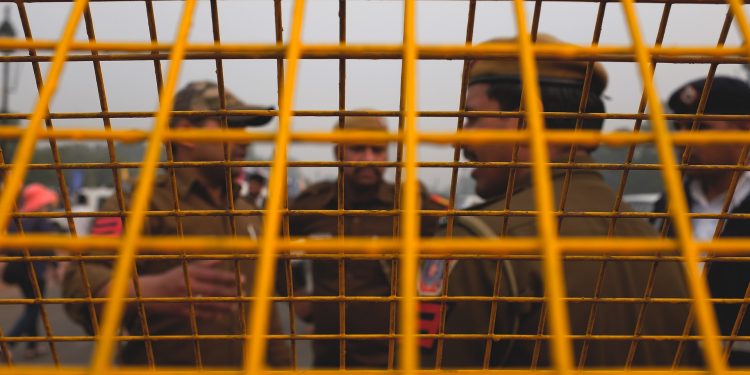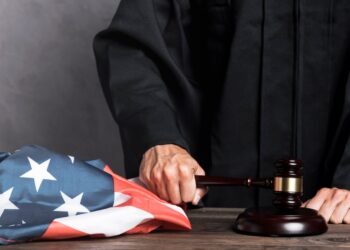India in the World
- On November 17, Prime Minister Narendra Modi condemned the deaths of civilians amid Israel’s war on Gaza: “India has condemned the heinous terrorist attack in Israel on October 7. We also strongly condemn the deaths of civilians in the conflict between Israel and Hamas.” Simultaneously, research shows that Indian actors, including BJP social media accounts, are a major source of disinformation about the conflict.
- On November 18, the Maldives said it has asked India to remove its military presence from the island country. According to the Maldivian defence forces, in 2021 there were 75 Indian military personnel in the Maldives.
- On November 22, India resumed e-visa services for Canadian nationals. They were paused two months ago due to recent bilateral tensions, after Canadian Prime Minister Justin Trudeau said that there were “credible” allegations linking Indian agents to the murder of Sikh separatist leader Hardeep Singh Nijjar in June. India’s External Affairs Minister Jaishankar said India does not rule out an investigation into the killing, and asked Canada for evidence.
- On November 22, the Financial Times reported that US authorities allegedly thwarted a conspiracy to assassinate a Sikh separatist on US soil. The US authorities issued a warning to India’s government over concerns it was involved in the plot, and noted the target is a US citizen. On November 29, US authorities arrested a man of Indian origin for attempted assassination. The same day, India said it has constituted a high-level inquiry committee to examine the allegations.
Civil Society, Human Rights Defenders and Journalists
- In November, the Delhi High Court announced that it will hear afresh in January the bail petitions of human rights defender Sharjeel Imam and others who were accused of conspiracy during the Delhi Riots 2020. Their prolonged detention without trial violates their right to “a fair and public hearing by a competent, independent, and impartial tribunal established by law” (Article 14 ICCPR) and the prohibition of arbitrary deprivation of liberty as established in Article 9 ICCPR.
- On November 3, the Supreme Court granted protection from arrest to two journalists of the Organised Crime and Corruption Reporting Project who had been summoned by the Gujarat Police in connection with their report on alleged stock manipulation by the Adani Group. The Adani group reportedly has close ties to the BJP government. The police harassment arguably threatens freedom of expression of journalists under Article 19 of the ICCPR.
- On November 7, the India-based Organized Crime and Corruption Reporting Project told media that the smartphone of one of their journalists was allegedly targeted using Pegasus spyware in August. This raises concerns about the right to freedom of expression, the protection of human rights defenders (Article 22 ICCPR), and the right to privacy and freedom from arbitrary or unlawful interference with one’s home (Article 17 ICCPR). India acquired the Pegasus spyware from Israel as part of a defence deal in 2017. At least 160 Indians, including prominent activists, lawyers and politicians, have been spied on using the Pegasus malware. The Indian government did not cooperate in the Supreme Court’s investigation.
- On November 9, the Jammu and Kashmir High Court quashed the detention of journalist Sajad Gul, who was arrested in January 2022 under the “Public Safety Act”. The court said that there was no specific allegation against him to show that his activities could be “prejudicial to the security of the state”. His prolonged and arbitrary arrest therefore appears to violate the right to liberty (Article 9 ICCPR).
- On November 16, India’s National Press Day, the Kerala Police summoned and interrogated a Maktoob Media editor and reporter over an article they had published on alleged anti-Muslim bias of police. The police filed a case against them for “provocation with intent to cause riot” in relation to the article, a reprisal which may threaten freedom of expression of journalists under Article 19 of the ICCPR. Maktoob Media condemned the case, calling it a “threat” to the “journalistic independence of reporting stories without reprisal”, and 40 organisations released a statement expressing solidarity with Maktoob.
- On November 16, Information and Broadcasting Minister Anurag Thakur at an event by the Press Council of India said there are “there are individuals and media outlets that consistently spread fake propaganda against Bharat, both domestically and internationally.” While the statement does not violate human rights, it reportedly refers to so-called “anti-India” journalists, who report independently on human rights violations and are therefore exercising their legitimate freedom of expression.
- On November 17, the Jammu and Kashmir High Court granted bail to journalist Fahad Shah, who was arrested on charges of supporting terrorism 21 months ago. The Court noted that “no evidence has been brought on record” and that not a “single witness” supports the allegations. His prolonged and arbitrary arrest therefore appears to violate the right to liberty (Article 9 ICCPR).
- On November 20, Maharashtra Police arrested over 20 people and beat with sticks Adivasi (indigenous) protestors who were holding a peaceful sit-in against six proposed mines. The arrests may contravene the rights to freedom of expression and to peaceful assembly and freedom of association under Articles 19, 21 and 22 of the ICCPR.
- On November 22, the Delhi High Court ordered news portal The Wire to take down a report that linked the son of the Delhi Chief Secretary to a case related to inflated valuation of land. This may have consequences for the right to freedom of expression (Article 19 ICCPR).
- On November 22, human rights defender Khurram Parvez marked two years of being arbitrarily imprisoned without trial. The UN Human Rights Office of the High Commissioner condemned Parvez’s arrest as violating the right to liberty (Article 9 ICCPR).
- On November 25, a court sentenced four men to life imprisonment for the murder of woman journalist Soumya Vishwanathan in 2008. The murder raised questions about the protection of journalists’ right to life (Article 6 ICCPR).
- On November 29, the Supreme Court again adjourned the bail hearing of human rights defender Umar Khalid. Khalid has been detained without a trial since 2020, when he was arrested under the UAPA and sedition laws for his participation in protests against India’s discriminatory Citizenship Amendment Act. Khalid’s bail petitions have been repeatedly denied, thereby contravening the prohibition of arbitrary deprivation of liberty as established in Article 9 ICCPR.
Media and Technology
- On November 1, opposition leaders urged the Lok Sabha (Indian Parliament) to seek accountability for potential state-sponsored attacks on iPhones. On October 31, Apple had sent threat notifications to users in multiple countries, including journalists and opposition politicians in India, warning that their Apple devices and accounts were targeted by “state-sponsored attackers”, in violation of the right to privacy under Article 17 ICCPR. However, on November 25, it emerged that the Indian Computer Emergency Response Team was recently exempted from the Right to Information of Indian citizens, hampering accountability.
- On November 8, following a deep fake about an actress, the central government issued an advisory to social media corporations to remove deep fake videos within 36 hours of receiving a complaint. On November 17, Prime Minister Narendra Modi said that deep fakes have become “a matter of serious concern for the country”. On November 21, the Minister of Electronics and ITC announced the central government would soon frame regulations on deep fakes.
- On November 10, the central government proposed a Bill that seeks to regulate online streaming platforms, including Netflix and Amazon Prime Video. The Bill proposes to only allow films and shows that are “duly certified” by a “content evaluation committee” to be offered. Streaming services have reportedly faced police cases in India on charges of hurting religious sentiments, and many have reportedly self-censored content in the last few years. On November 20, the Washington Post reported that under pressure from Hindu supremacists, Netflix and Amazon in India have dropped projects touching on political and social issues, and documentaries, and have re-edited scenes showing prayers or the names of Gods. Additionally, following a controversy about the movie “Tandav,” Netflix executives in India reportedly feared arrest. The practice and proposed legislation may have severe consequences for the right to freedom of expression (Article 19 ICCPR).
- On November 24, India’s Information Technology Ministry reportedly criticised social media platforms for not having aligned their terms of service with India’s internet laws and told them to immediately start informing their users what can and cannot be posted on their platforms. The relevant Minister stated that India’s IT Rules prohibit platforms from hosting deep fakes, misinformation, and content that spreads obscenity, among other things, and offered to assist citizens with filing cases against social media corporations for violating the rules.
- On November 27, Dutch cybersecurity firm Surfshark reported that in the third quarter of 2023, India experienced approximately 370,000 online account breaches, such as sharing of sensitive information to unauthorised third parties. India therefore ranked tenth globally in terms of numbers of breached accounts, raising questions about the state’s ability to protect citizens’ right against arbitrary interference with privacy, family and home (Article 17 ICCPR).
Political Parties and Election Monitoring
- The Global State of Democracy 2023 report by International IDEA notes that India saw significant declines in the credibility of its elections and the freedom of opposition parties. Out of 173 countries, India ranked 66 in representation (a decrease from 2021), 83 in participation (the same as 2021), 104 in rights (a decrease from 2021), and 74 in rule of law (an increase from 2021).
- On November 4, “Maoist insurgents” reportedly killed a BJP leader in Chhattisgarh state, three days before elections. This raises questions about the state’s ability to protect citizens’ right to life (Article 6 ICCPR
- On November 4, a former Chief Minister from the ruling BJP demanded that another BJP leader who called for mosques and gurudwaras (Sikh temples) to be destroyed should face legal action. On November 5, the BJP expelled the leader for his call for destruction. The incident constitutes a ruling party lawmaker advocating for religious hatred that constitutes incitement to discrimination, hostility or violence (Article 20 ICCPR).
- On November 5, Chief Minister of Uttar Pradesh state Yogi Adityanath at an election rally promised action against “love jihad”. Love Jihad is an Islamophobic conspiracy theory purporting that Muslim men target Hindu women for forced religious conversion. The incident constitutes a ruling party lawmaker advocating for religious hatred that constitutes incitement to discrimination, hostility or violence (Article 20 ICCPR).
- On November 14, the Election Commission issued notices to Congress leader Priyanka Gandhi Vadra and Aam Aadmi Party chief Arvind Kejriwal for allegedly making unverified and false statements about Prime Minister Narendra Modi. They had in separate instances alleged links between Modi and corporate leaders.
- On November 15, Telangana police filed a case against BJP legislator Raja Singh for reportedly engaging in hate speech against Muslims during an election meeting. The incident constitutes a ruling party lawmaker advocating for religious hatred that constitutes incitement to discrimination, hostility or violence (Article 20 ICCPR).
- On November 22, a Lok Sabha (Parliament) committee summoned a legislator from the ruling BJP, Ramesh Bidhuri, for hate speech made during parliament session. On September 21, Bidhuri had reportedly called another politician of the Muslim community a “militant”, “terrorist” and “pimp”, and demanded to “throw this mullah [derogatory word for Muslim] out”. On September 26, the BJP then reportedly appointed Bidhuri as in-charge for polling in one district. The incident constitutes a ruling party lawmaker advocating for religious hatred that constitutes incitement to discrimination, hostility or violence (Article 20 ICCPR).
- On November 28, the Association for Democratic Reforms published their annual analysis of criminal background of candidates in several regional assembly elections. They found that at least 18% of candidates contesting in the selected elections have criminal cases against them.
Hate Crimes and Hate Speech against Minorities
- On November 2, police arrested six people for allegedly assaulting, stripping, robbing and urinating on two men from the Dalit (“untouchable”) caste. The incident may violate the prohibition of torture, cruel, inhuman or degrading treatment or punishment under Article 7 of the ICCPR.
- On November 10, a police sub-inspector reported










